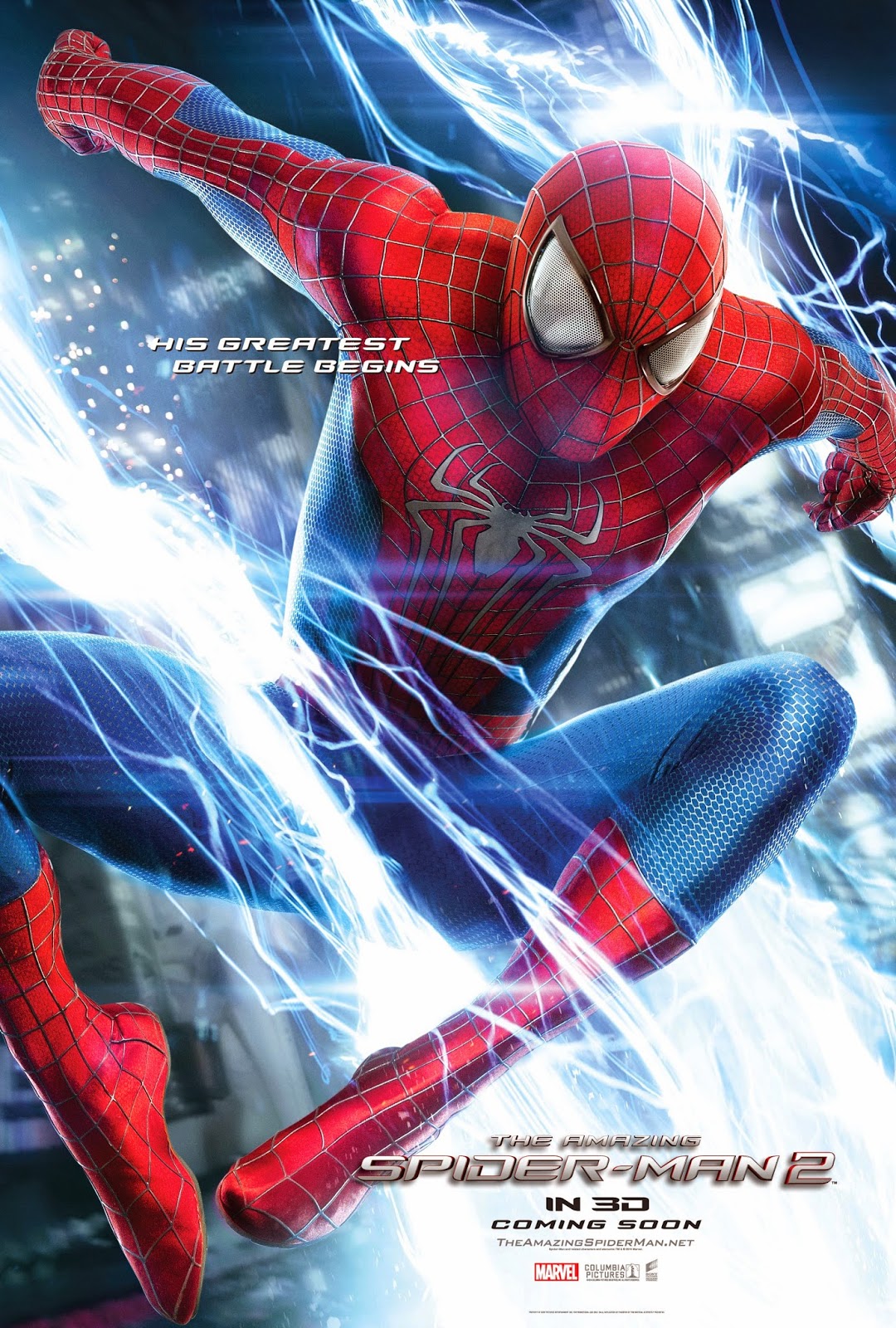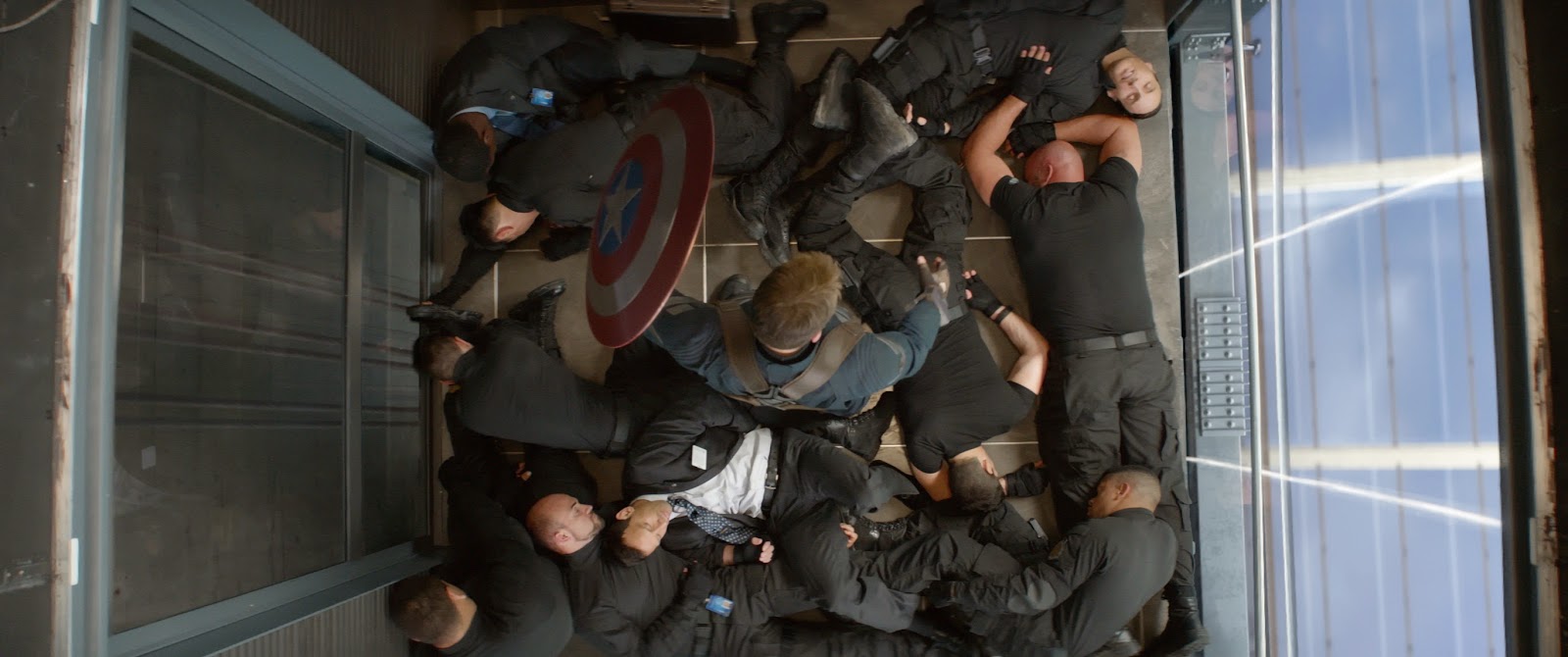I was not exactly a fan of
‘The Amazing Spider-Man’; I felt it was an altogether sloppy reintroduction of
the character that put too much focus on its romance subplot and not enough on
the exploits of its titular hero. I did however predict at the time that the
next iteration in the series would see a notable rise in quality as it learned
from the mistakes of its predecessor and expanded upon the aspects it handled
well. Well as it turns out I was correct in my assumption, ‘The Amazing
Spider-Man 2’ marks a massive improvement over the previous film, and I really
do mean massive.
Having embraced his life as
Spider-Man, Peter Parker (Andrew Garfield) inspires New York with his heroic
acts but as a result his personal life and relationship with Gwen Stacy (Emma
Stone) suffers. When old friend Harry Osborn (Dane DeHaan) returns to the city
Peter begins to re-examine his past and contemplate the mysterious
circumstances surrounding the disappearance of his parents.
I wasn’t overly impressed
with Andrew Garfield’s previous work as Spider-Man but in this film he proves
beyond a shadow of a doubt that his work as the wisecracking webslinger is
second to none. Even more important than that though is how much improvement
has been made to his Peter Parker; he is no longer the standoffish young man we
met in the first film, Peter’s confidence as a hero has permeated into his
personal life and we see an assured and evolved character played with finesse
by Garfield. The romantic love interest of ‘The Amazing Spider-Man’ also
features in this film yet again played by the increasingly impressive Emma
Stone. Gwen is given a lot more to do here than she has previously, allowing
her to break free of the constraints usually placed upon the female love
interest in a comic book movie. Emma Stone gives an earnest performance as Gwen
Stacy that shows dramatic depth as well as expert comedic sensibilities, this
combined with her fantastic chemistry with Garfield makes their on-screen
relationship one of the undeniable triumphs of the film.
 |
| Spider-Man saves a pre-Electro Max Dillon |
‘The Amazing Spider-Man 2’ ups the ante when
it comes its villains, having not one but two primary antagonists, Electro as
played by Jamie Foxx, and Green Goblin played by Dane DeHaan. Unlike the very
disappointing ‘Spider-Man 3’ this film handles its plethora of villains in a
smart and well-focused way so as to have a hierarchy to its enemies rather than
the outright chaos of Sam Raimi’s last Spider-Man effort. Foxx is great as
Electro’s alter ego Max Dillon who the film depicts as an obsessive Spider-Man
fan and a very lonely individual. Electro on the other hand feels quite
underwritten and dull; annoyingly the film seems to forget about Dillon’s
intelligence as a scientist once he becomes Electro as the character becomes
gullible and subservient to the more forceful personalities he is exposed to,
nevertheless I felt Foxx brought a vulnerability to the character that shines
during the scene in Times Square. The saving grace of the character is the
brilliant portrayal of his power, Electro, like no other villain in a
Spider-Man film before him, seems truly powerful and a fierce adversary for
Spider-Man.
Meanwhile Dane DeHaan is
faced with a very different villainous role in that he enters the film as an
ostensibly shady character whose descent into evil is driven by desperation and
paced perfectly. DeHaan’s Harry Osborn feels like a much better crafted
character than the last iteration seen onscreen with James Franco in the role,
and even with just one film to Franco’s three, DeHaan manages to imbue the
character with much more depth. However just as with Max Dillon and Electro,
Harry Osborn and Green Goblin differ in quality in certain regards. DeHaan’s
surprisingly short spell (in this film at least) as the Goblin feels disconnected
from his earlier performance and when thought of purely as a villain he is
somewhat lacking as unlike Electro who boasts menacing, godlike power, Green
Goblin just seems like any other generically unhinged and altogether tacky
villain.
 |
| Dane DeHaan's Harry Osborn is the best portrayal of the character yet. |
Marc Webb’s direction is
another highlight of the movie, having refined his technique from the previous
film Webb is able to deliver a much better crafted story with a much neater
plot thanks to screenwriters Alex Kurtzman, Roberto Orci, and Jeff Pinkner; an
entirely new brain trust of writers from the first film. Kurtzman and co.’s
script weaves together interesting side plots into a complete and satisfying
narrative free from the clunky secondary stories of ‘The Amazing Spider-Man’. Also
deserving of praise is cinematographer Daniel Mindel (who will soon work on the
upcoming ‘Star Wars Episode VII’), who offers some really terrific photography
both in moments of quiet character reflection and in large-scale action set
pieces.
This film more than any other
cinematic iteration of Spider-Man succeeds in portraying the wall crawler as
exactly what he is, one of the greatest superheroes ever devised. Peter
Parker’s story is incredibly relatable and yet as Spider-Man it is inspiring,
not even the likes of Tony Stark or Steve Rogers can deliver the same humanity
to their superheroism. The occasions where the film stops to have a human
moment, whether that is between Gwen and Peter or when exploring the past of
Peter’s father, it gets the tone right in having humanity be one of the
defining aspects of Spider-Man as a whole. One thing I really loved in the film
was the representation of what Spider-Man comes to mean to the citizens of New
York, this is handled magnificently and certainly left a lasting impression on
me as the credits rolled.
All it takes is a cursory glance at this film’s trailer to have an idea of the magnitude of the impressive action in the battle scenes. A particularly grandiose clash sees Spider-Man take on Electro in an electrical plant; here the action becomes truly spectacular as the brilliantly shot fight shows Spider-Man barely avoid Electro’s attacks with slow-motion camerawork being engaged to make it all the more exhilarating.
 |
| Spider-Man struggles to overcome Electro's immense power. |
Arguably the most exciting
thing about this film is the sheer amount of establishing it does for the wider
Spider-Man universe that Sony hopes to curate. With films about Venom and the
Sinister Six already on the cards, hopes for a shared continuity between
Spider-Man films to exist in the same capacity as Marvel’s Cinematic Universe
looks bright, let’s just hope they take the same care and expertise employed
here when handling those spinoff films.
Sam Raimi and Tobey Maguire’s
run with Spider-Man will always have a special place in my heart, they were the
first time the character had ever transitioned to the big screen and
Raimi/Maguire really did Spider-Man justice. I mention this because I want my
appreciation of that series (in particular the original ‘Spider-Man’) to be
clear when I say that this film, ‘The Amazing Spider-Man 2’ is my favourite
Spider-Man film to date. It combines all of the brilliant blockbuster action
audiences would come to expect from a comic book movie with a layered portrayal
of Peter Parker including a satisfying evolution to his character. Amazing may
yet be out of reach, but this film has spectacular well within its grasp.


























